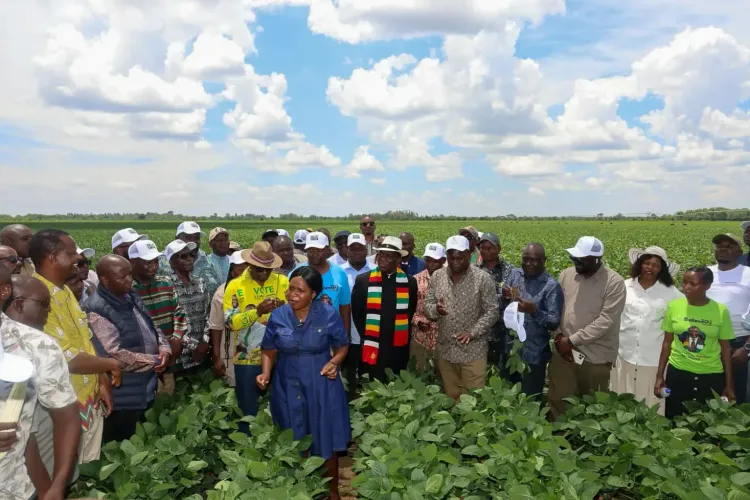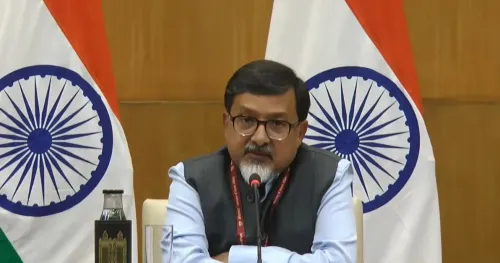World Bank Projects Positive Economic Growth for Zimbabwe in 2025

Synopsis
Key Takeaways
- Zimbabwe's economic growth expected to reach six percent by 2025.
- Recovery in agriculture driven by maize and tobacco production.
- Mining sector shows strong growth due to rising gold prices.
- Tourism industry is witnessing rapid expansion.
- Manufacturing sector struggling with power shortages.
Harare, Jan 31 (NationPress) The economic prospects for Zimbabwe appear encouraging, with anticipated growth projected to rise to six percent in 2025, a significant increase from the two percent growth recorded last year, driven by a forecasted recovery in agriculture along with strong performance in industry and services, according to the World Bank (WB) on Friday.
The WB highlighted that Zimbabwe's economic outlook is optimistic, reflecting recovery from the 2019/2020 Covid-19 downturn and the 2024 El Nino-related drought in its latest Zimbabwe Economic Update report.
Titled 'Improving Resilience to Weather Shocks and Climate Change', the report underscores the potential for Zimbabwe to enhance its resilience to climate-related shocks and further stimulate growth.
The anticipated economic recovery in 2025 is attributed to a comprehensive post-drought rebound, with agriculture, a vital sector for the economy, expected to expand by nearly 13 percent, primarily fueled by the recovery in maize and tobacco outputs.
Additionally, the report pointed out that Zimbabwe's mining industry is showing robust growth, supported by surging gold prices and new investments set to boost lithium output as well as iron and steel production.
Furthermore, the tourism sector is experiencing rapid growth, marked by a rise in international visitors and increased hotel occupancy rates, as per the report.
Conversely, the manufacturing sector has faced subdued growth, partly due to power shortages stemming from drought conditions, which have led to declining water levels in Lake Kariba, negatively impacting Zimbabwe's hydroelectric power capabilities, the report noted.
To foster economic expansion, the WB emphasized that Zimbabwe must continue addressing its macroeconomic challenges to achieve price and exchange rate stability, according to the Xinhua news agency.
The southern African nation also needs to persist in its efforts to clear arrears and resolve debt through the Structured Dialogue Platform, the WB stated.
In the context of restoring macroeconomic stability, it is crucial to mitigate the effects of economic reforms on vulnerable households. The WB stressed the importance of identifying methods to assist these households, alongside government and development partners.
Eneida Fernandes, the WB Country Manager for Zimbabwe, emphasized the necessity for the nation to enhance irrigation systems and invest in landscape and watershed management to strengthen resilience against climate-related disturbances.
Climate shocks such as droughts threaten sustainable development and worsen poverty rates, making it essential to bolster the agricultural sector's resilience, Fernandes concluded.









